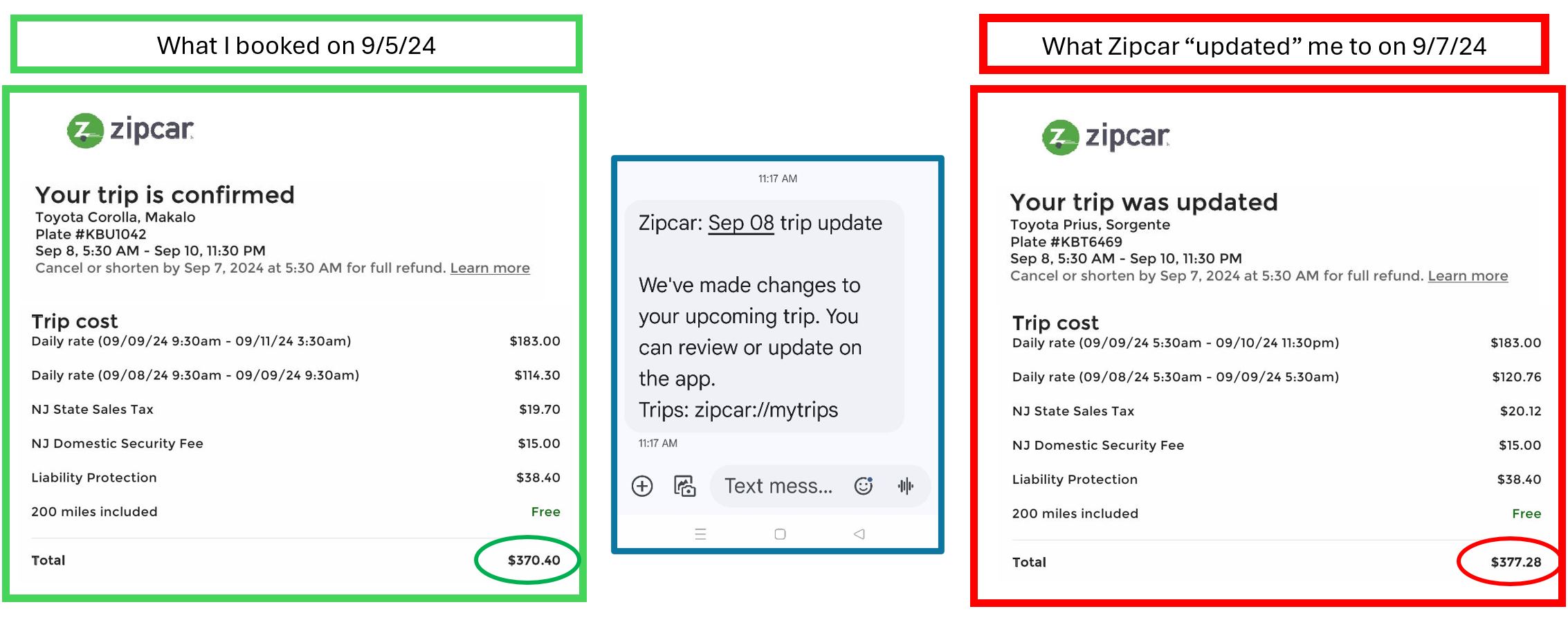
I have blogged elsewhere that I have never owned a car, preferring instead to rent – believing it reduces my environmental footprint, however slightly. Consequently, I frequently use Zipcar.
One annoyance for all Zipcar members: It is not unusual for Zipcar to modify or cancel a reservation shortly before a scheduled pickup. Sometimes, that means sending you to a faraway location. As frequently, it means accepting a change in the type of vehicle – sometimes better, sometimes worse. Until this year, Zipcar honored the rate quoted in the original reservation. No longer.
Three times now, I have been “bumped” into a different class of vehicle and Zipcar has deliberately or by happenstance chosen to profit from the unilaterally imposed, last-minute change. In the first instance, I was downgraded from a Honda CRV to a Kia Soul but charged the SUV rate, as if I wouldn’t notice the loss of cargo space. After twenty minutes on hold, the customer service agent apologized and issued me a credit for the different rate – as if I had cancelled the CRV reservation and rebooked the subcompact myself.
The second time, it was the opposite. Zipcar switched me from a Chevy Malibu to a Honda CRV and charged my credit card for the amount I would have spent if I intentionally reserved the Honda CRV instead of the Malibu. Another twenty minutes on hold, another apology, another credit.
At 11:17am, my phone pinged with a text; my 5:30 am rental tomorrow morning of a Toyota Corolla was “updated” to a Toyota Prius – a vehicle with a $7 higher rate per weekday. This time, I spent 16 minutes on the phone, speaking with two different agents (It’s never easy!). When I explained to the second agent that I was being charged a higher daily rental rate than I agreed to, just because Zipcar (not me!) decided to “update” my reservation, the representative replied, “Yes, I see that. It’s a more expensive vehicle.” As in: “Zipcar can switch your reservation at its exclusive option to the most expensive vehicle in the fleet, charge you that vehicle’s quoted higher rate, and that’s just good business.” I eventually got the credit, but I detect an unsettling pattern. What at first seemed like oversight now seems like calculated profit-making subterfuge – the kind that too often arises from upper management.